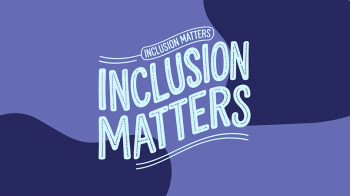Greetings! We are delighted to invite you to the captivating realm of Cognitive Behavioral Therapy (CBT)! This cutting-edge methodology, focused on assisting individuals in conquering diverse challenges and attaining optimal psychological wellness, stands out for its originality. CBT for health anxiety presents a distinct approach rooted in comprehensive research and validated efficacy. By facilitating the transformation of negative thought patterns, surmounting psychological obstacles, and fostering skill acquisition, it empowers individuals to achieve personal growth. Through a personalized CBT treatment blueprint and the dedicated guidance of a seasoned practitioner, anyone can access the invaluable assistance and support necessary for cultivating psychological well-being.
How is cognitive behavioral therapy different from other psychotherapies?
One might wonder, what sets Cognitive Behavioral Therapy (CBT) apart from traditional psychotherapy? The distinction is clear-cut: CBT therapy concentrates on the intricate interplay between our thoughts. It operates under the premise that our thoughts exert influence over our behaviors and emotional well-being, positing that modifying these thought patterns can yield positive outcomes in our daily lives. Unlike conventional approaches that delve extensively into past events and intricate personality intricacies, CBT fixates on the here and now, exploring how present circumstances shape our behavior in the present moment. Embrace the opportunity to empower yourself without hesitation.
When is cognitive behavioral therapy an option?
Cognitive Behavioral Therapy (CBT) encompasses a diverse array of techniques tailored to meet individual needs. These encompass cognitive restructuring, mindfulness cultivation, adept stress management, and comprehensive social skills training. CBT sessions are customized, offering both one-on-one and group formats, with the duration carefully tailored to suit each client's unique circumstances. Its versatile applications render CBT invaluable for individuals grappling with a myriad of disorders. Moreover, this therapeutic modality aids in addressing relational difficulties, effectively managing workplace or personal stress, and fostering enhanced self-esteem and self-assurance.
What is cognitive therapy?
Within the realm of Cognitive Behavioral Therapy (CBT), a multitude of approaches exists, each uniquely suited to address specific concerns. These encompass cognitive restructuring, behavioral experimentation, the cultivation of emotion regulation skills, and more. It is crucial to recognize that CBT therapy revolves around specific goals and desired outcomes, as determined by the individual seeking treatment.
Numerous techniques can be discerned among the diverse CBT approaches. One such technique is cognitive restructuring, which aims to identify and modify negative or distorted thoughts and beliefs. This pivotal step plays a vital role in the therapeutic process, fostering an improvement in our psychological well-being. Additionally, exposure therapy stands as another commonly employed approach, demonstrating efficacy in treating phobias and post-traumatic stress disorder. By skillfully integrating these techniques and tailoring them to individual needs, CBT empowers individuals to achieve their desired psychological outcomes.
How does behavioral therapy work?
By fostering collaboration, individuals engaging in therapy gain profound self-awareness. Consistent adaptations are made to facilitate the attainment of desired outcomes. This approach emphasizes active client involvement, rendering it distinctive and personalized. Despite prevailing misconceptions surrounding the therapeutic process and its potential outcomes, it is important to recognize that treatment is highly individualized. While you may have encountered numerous anecdotes from acquaintances, it is crucial to understand that each person's journey is unique. There is absolutely no need for apprehension. Cognitive Behavioral Therapy presents an exceptional avenue for internal healing. It is undoubtedly worthwhile to explore and experience firsthand.
Can cognitive behavioral therapy also have side effects?
It is imperative to acknowledge that Cognitive Behavioral Therapy (CBT) necessitates active engagement, occasionally eliciting uncomfortable emotions or thoughts throughout the course of the therapeutic process. Such experiences constitute a natural component of the therapeutic journey. Additionally, some individuals may encounter mild physical symptoms, such as headaches or fatigue, as they actively participate in the therapeutic work. Transparent communication with your clinical therapist regarding any concerns or discomforts is of utmost importance. Your therapist will forge a collaborative partnership with you, prioritizing your well-being and making requisite adjustments to the therapy approach, as necessary.
Which thought and behavioral patterns are harmful, which are not?
Recognizing detrimental thought and behavioral patterns is a subjective process, contingent upon factors such as individual circumstances, cultural influences, and personal values. Nevertheless, several general patterns are widely acknowledged as harmful. Negative self-talk, characterized by incessant self-criticism or adopting a self-perception as a failure, can significantly undermine self-esteem and overall well-being. Catastrophic thinking, fixating excessively on worst-case scenarios, tends to fuel heightened anxiety and unwarranted distress. Engaging in destructive behaviors, such as substance abuse, self-harm, or aggression, poses severe consequences for both physical and mental health. It is essential to address and transform these patterns to foster personal growth and improved psychological well-being.
How does cognitive behavioral therapy work and how long does it take?
The primary objective of cognitive behavioral therapy is to facilitate the transformation of unhelpful thoughts that contribute to various psychological disorders. CBT equips individuals with a set of tools to make conscious and constructive choices while fostering the development of healthy psychological habits. Now that we have gained a comprehensive understanding of CBT and its potential benefits, it is worth noting that on the TeMa platform, you can discover psychology tutors who possess expertise in CBT techniques and are eager to provide assistance. Wishing you the best of luck on your journey!


-preview.png)